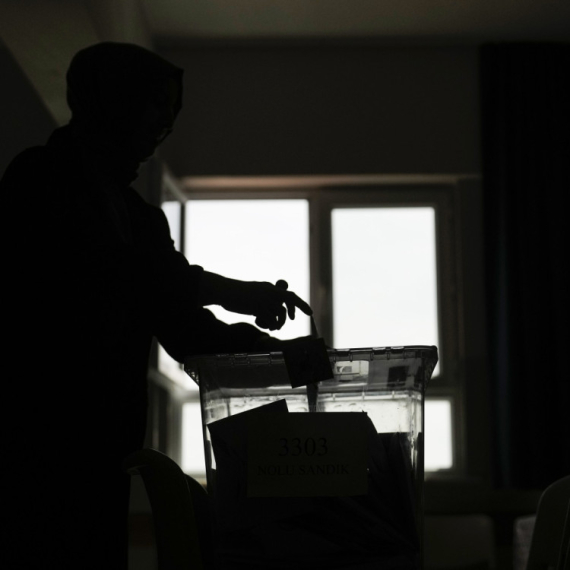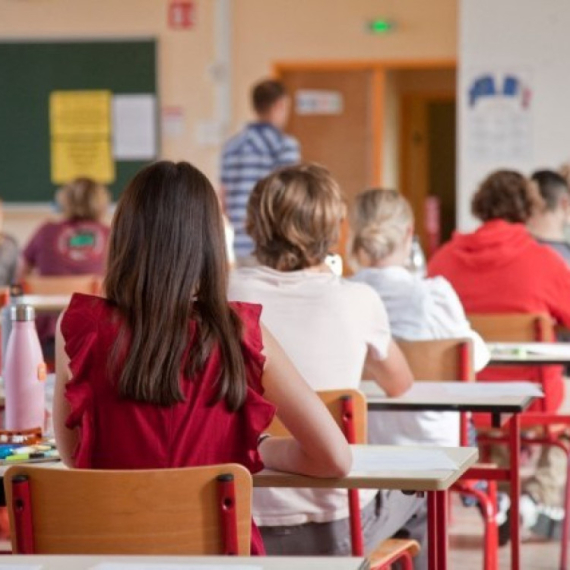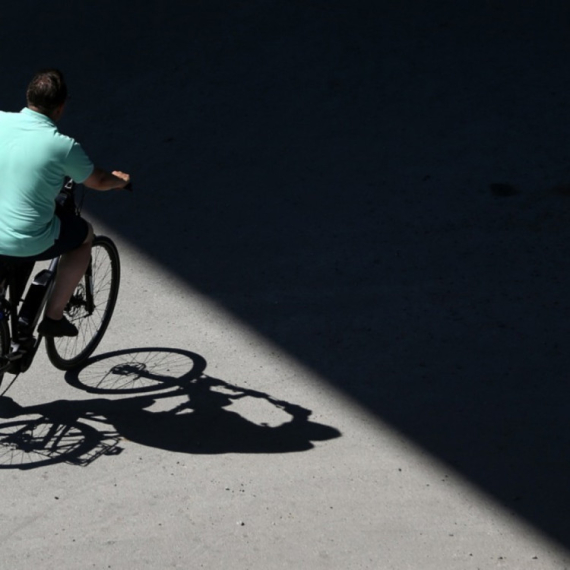"Free media as condition for EU integration"
EU Enlargement Commissioner Stefan Fule has said that free media are one of the main conditions for EU integration of candidate countries.
Thursday, 20.06.2013.
16:13

BRUSSELS EU Enlargement Commissioner Stefan Fule has said that free media are one of the main conditions for EU integration of candidate countries. Strong democracy is a condition for accession and the freedom of the media is the best indicator of the strength, Fule said opening the conference entitled Speak Up on the freedom of the media in the Western Balkans and Turkey. "Free media as condition for EU integration" The conference organised by the EU Enlargement Directorate gathered over 400 reporters, politicians and public servants from the region and the EU. Fule expressed fierce criticism of the Turkish government over the censorship during the protest in Istanbul, adding that this caused a deafening silence in the media. The commissioner said that the Commission marked freedom of the media in EU hopefuls as a top priority because this point is included in Chapters 23 and 24 which are the first ones to open during the negotiations on EU accession. This is the new approach we struggled hard to win, Fule said. Speaking about the media in the Western Balkans, Fule warned against a large number of unsolved attacks on reporters, and in this sense mentioned particularly Podgorica daily Vijesti editor Zeljko Ivanovic and B92's Veran Matic. He commended the country on forming the commission in charge of solving the cases of murder of reporters in Serbia and qualified this as a step in the right direction. Fule also said that public services in the Western Balkans are still too dependent on politicians. Public services need to be financially and politically independent with transparent funding rules, the commissioner said. At the end of the introductory speech, Fule voiced criticism of the reporters in the region who, according to him, are producing low-quality items and lack an auto-regulation mechanism. The media community in the Western Balkans is fragmented and polarised, which makes it difficult to defend the freedom of the spoken word, Fule said. (Tanjug, file) B92 editor-in-chief Veran Matic, who was a keynote speaker two years ago during the first Speak Up conference, today spoke about the need to protect journalists as well as reveal the killers and the masterminds. "Two years later, I can say that I have succeeded in Serbia to form a commission to investigate the murders of journalists, and after a few months of work we can talk about the progress in these investigations. For the first time the murdered colleagues are spoken about only on the anniversary of the murder, but daily, through the work of the commission and of investigating teams comprising police and members of the Security Intelligence Agency, " Matic said, and added: "Our goal is to explore why they have not discovered the killers and masterminds so far, and assist investigative teams in doing their job, uncover these cases and bring to justice the perpetrators. Only then can we talk about how to move forward in relation to the protection of journalists, according to the basic principles of respect for the profession, especially investigative journalism." Speaking about the journalists under 24-hour police protection, he mentioned a multitude of problems they face, such as freedom of movement, and mentioned that often both himself and B92 reporter Brankica Stankovic had trouble crossing the border with an armed escort. Recently, such a withdrawal of support was from Croatia (although until recently there was excellent co-operation in movement and security), where the people in the Croatian Interior Ministry explained that the change was due to the country joining the EU. Matic asked that he and those journalists who are most endangered be allowed to be safe in every country, and not to have to stay only in their own. He suggested that the European Commission set up a permanent process or body that will also in the two-year period between the two conferences engage more intensively in freedom of the media and journalists in the Western Balkans and Turkey, as problems pile up and the answers to these problems are lagging behind. Matic received an applause after the discussion at the European Commission headquarters in Brussels. (file) B92 Tanjug
"Free media as condition for EU integration"
The conference organised by the EU Enlargement Directorate gathered over 400 reporters, politicians and public servants from the region and the EU.Fule expressed fierce criticism of the Turkish government over the censorship during the protest in Istanbul, adding that this caused a deafening silence in the media.
The commissioner said that the Commission marked freedom of the media in EU hopefuls as a top priority because this point is included in Chapters 23 and 24 which are the first ones to open during the negotiations on EU accession. This is the new approach we struggled hard to win, Fule said.
Speaking about the media in the Western Balkans, Fule warned against a large number of unsolved attacks on reporters, and in this sense mentioned particularly Podgorica daily Vijesti editor Željko Ivanović and B92's Veran Matić.
He commended the country on forming the commission in charge of solving the cases of murder of reporters in Serbia and qualified this as a step in the right direction.
Fule also said that public services in the Western Balkans are still too dependent on politicians.
Public services need to be financially and politically independent with transparent funding rules, the commissioner said.
At the end of the introductory speech, Fule voiced criticism of the reporters in the region who, according to him, are producing low-quality items and lack an auto-regulation mechanism.
The media community in the Western Balkans is fragmented and polarised, which makes it difficult to defend the freedom of the spoken word, Fule said.

"Two years later, I can say that I have succeeded in Serbia to form a commission to investigate the murders of journalists, and after a few months of work we can talk about the progress in these investigations. For the first time the murdered colleagues are spoken about only on the anniversary of the murder, but daily, through the work of the commission and of investigating teams comprising police and members of the Security Intelligence Agency, " Matić said, and added:
"Our goal is to explore why they have not discovered the killers and masterminds so far, and assist investigative teams in doing their job, uncover these cases and bring to justice the perpetrators. Only then can we talk about how to move forward in relation to the protection of journalists, according to the basic principles of respect for the profession, especially investigative journalism."
Speaking about the journalists under 24-hour police protection, he mentioned a multitude of problems they face, such as freedom of movement, and mentioned that often both himself and B92 reporter Brankica Stanković had trouble crossing the border with an armed escort.
Recently, such a withdrawal of support was from Croatia (although until recently there was excellent co-operation in movement and security), where the people in the Croatian Interior Ministry explained that the change was due to the country joining the EU.
Matić asked that he and those journalists who are most endangered be allowed to be safe in every country, and not to have to stay only in their own.
He suggested that the European Commission set up a permanent process or body that will also in the two-year period between the two conferences engage more intensively in freedom of the media and journalists in the Western Balkans and Turkey, as problems pile up and the answers to these problems are lagging behind.
Matić received an applause after the discussion at the European Commission headquarters in Brussels.


























































Komentari 2
Pogledaj komentare